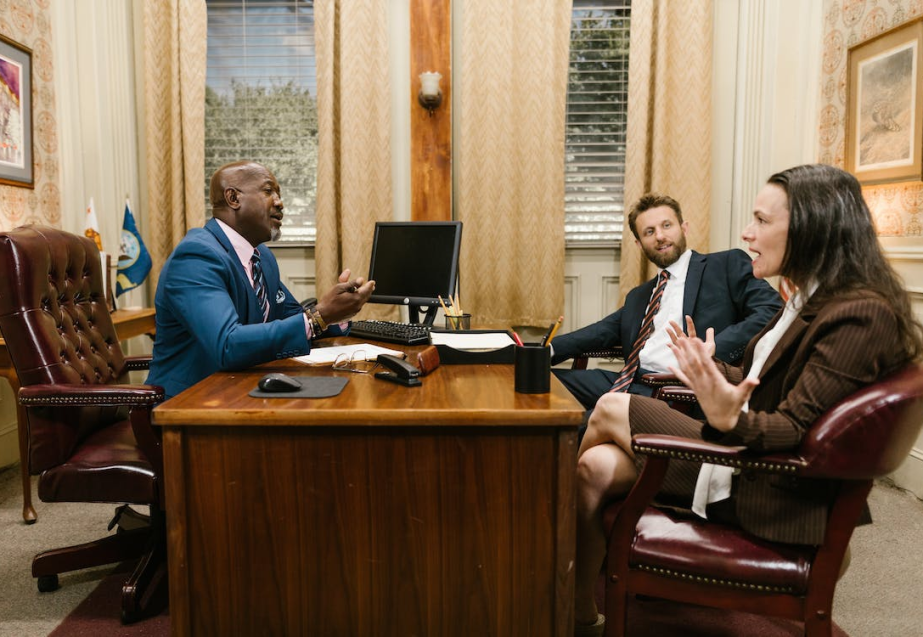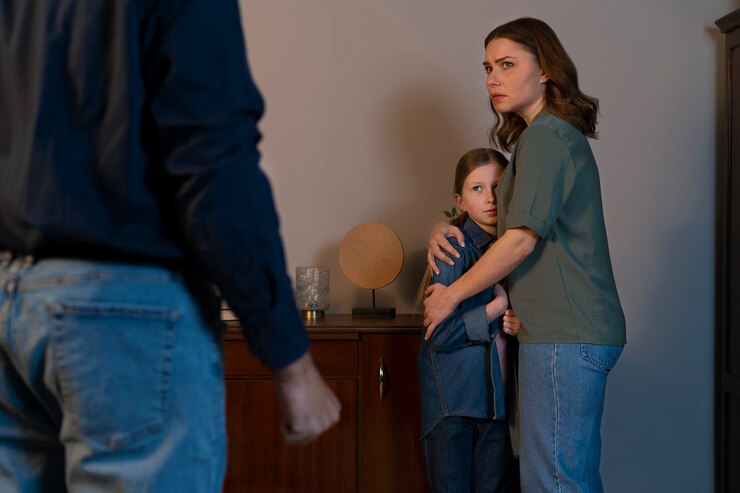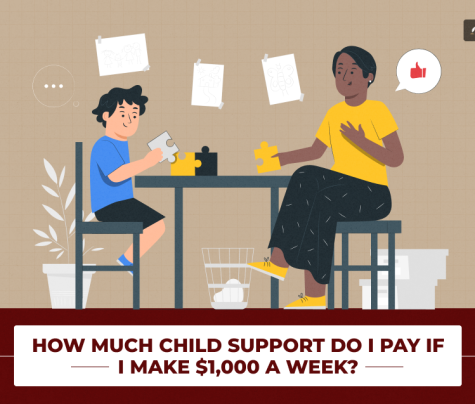
Domestic violence is a critical issue impacting individuals and families across various backgrounds and cultures.
It encompasses a range of behaviors, including physical, emotional, sexual, and psychological abuse. These acts aim to gain power and control over an intimate partner or family member.
The impact of domestic violence is profound, not only on the immediate victim but also on the broader family unit. Including children, It can lead to long-term psychological trauma, physical injuries, and, in extreme cases, fatalities.
Difference Between Family and Domestic Violence Lawyer
When facing legal issues related to family or domestic violence, understanding the difference between a family lawyer and a domestic violence lawyer is crucial.
While both family and domestic violence lawyers deal with family-related legal matters, some key differences exist in their areas of expertise.
Family Lawyer
Family Lawyers typically handle a broader range of family law issues, including:
- Divorce: They assist clients in the legal process of ending their marriage, including property division, child custody, and spousal support.
- Child Custody: They help parents establish custody arrangements for their children, including physical custody, legal custody, and visitation schedules.
- Adoption: They guide individuals or couples through the adoption process, ensuring that all legal requirements are met.
- Guardianships: They help individuals obtain guardianship of a minor or incapacitated adult.
- Prenuptial Agreements: They assist couples in creating prenuptial agreements to outline their property and financial arrangements in case of divorce.
Domestic Violence Lawyers
Domestic Violence Lawyers specialize in legal matters related to domestic violence, including:
- Restraining Orders: They help victims of domestic violence obtain restraining orders to protect themselves and their children.
- Criminal Charges: They represent victims of domestic violence in criminal cases against their abusers.
- Custody and Visitation: They help victims of domestic violence modify custody and visitation arrangements to ensure their safety and the safety of their children.
- Property Division: They assist victims of domestic violence in dividing property fairly in cases of separation or divorce.
Family vs. Domestic Violence Lawyer
In essence, while a family lawyer can handle general family law matters, a domestic violence lawyer has specialized knowledge and experience in dealing with the unique legal issues that arise in domestic violence cases.
It’s important to note that some family lawyers may also have experience in domestic violence cases.
However, if you’re facing domestic violence, it’s often recommended to seek the expertise of a lawyer who specializes in this area. They can provide you with the specific guidance and support you need.
Here’s a more detailed breakdown of the key differences:
| Scope | Domestic Violence Lawyer | Family Lawyer |
| Focus | Exclusively on cases involving domestic violence | Handle a broader range of family law matters |
| Expertise | Specialized knowledge and experience in dealing with the complex legal issues that arise in domestic violence cases, such as restraining orders, criminal charges, and custody modifications. | There are no specifications. They can handle all sorts of cases related to family law |
| Support | Untitled document – Google Docs | No such connection is required |
| Advocacy | Passionate advocates for victims’ rights and are committed to ensuring justice. | They are equally passionate about the victims and try their best to win the case. |
Should You Seek Help from a Family Lawyer in a Domestic Violence Case?

In the context of domestic violence, a family lawyer serves as a crucial advocate for the victim’s rights and safety.
Moreover, these legal professionals guide through the complexities of the legal system, offering support in obtaining protective orders.
In addition, they are experts in navigating child custody issues, and addressing financial matters. A family lawyer can also connect victims with additional resources, such as counseling services and domestic violence shelters, ensuring a comprehensive approach to their safety and well-being.
Here’s how a family lawyer can help:
Understanding Your Rights
They can explain your legal rights and options in detail, ensuring you’re aware of them and protected by the law. This includes understanding the different types of domestic violence, the legal consequences for abusers, and the available protective orders.
Obtaining a Restraining Order
If you’re experiencing domestic violence, a restraining order can provide immediate safety. Your lawyer can help you file for one quickly and effectively, ensuring it’s enforced and providing you with the necessary protection.
Custody and Visitation
If you have children, a family lawyer can assist with child custody and visitation arrangements, ensuring the safety and well-being of your children. They can help you create a custody plan that protects your children from further harm and ensures their emotional stability.
Property Division
In cases of separation or divorce, a family lawyer can help you navigate the complex process of dividing property fairly. They can help you identify your assets and liabilities, negotiate a fair settlement, and protect your financial interests.
Legal Representation
They can represent you in court, advocating for your rights and ensuring your case is handled professionally and effectively. A family lawyer can help you gather evidence, prepare for trial, and compellingly present your case.
How Can Family Lawyers Help in Domestic Violence Cases
If you are considering getting a family lawyer for your case, you do not need to think twice. Here are a few ways in which they can help you legally:
Legal Protection

- Understanding Restraining Orders
- Navigating The Legal System
The family lawyers can provide the much-required legal protection to the clients.
Restraining orders, also known as protective orders, are vital legal tools issued by a court to protect victims of domestic violence from their abusers.
Moreover, these orders can impose various conditions, such as prohibiting the abuser from contacting or approaching the victim.
These orders, in some instances, order the abuser to vacate a shared residence. Navigating the process of obtaining a restraining order can be complex and emotionally taxing.
Clarity Lawyers, expert family lawyers in Newcastle, can provide invaluable assistance in such situations.
Their expertise in family law ensures that the victim’s application for a restraining order is meticulously prepared. At the same time, they ensure that all the necessary legal criteria are met.
Clarity Lawyers’ understanding of the nuances of such cases allows them to effectively advocate for the victim and present a compelling case to the court.
However, victims can navigate this challenging process with their support with greater confidence and clarity. Ultimately, it helps ensure their safety and legal rights are prioritized.
The legal system can be daunting, especially for those dealing with the trauma of domestic violence.
A family lawyer plays a pivotal role in guiding victims through this process, from filing complaints and gathering evidence to representing them in court proceedings. They ensure that the victim’s voice is heard and their rights are upheld while also dealing with the nuances of family law, including divorce proceedings and custody battles.
Child Custody Issues

- Safeguarding Children
- Custody Arrangements
Child custody issues have their complexities. This is where the legal experts play a key role in ensuring the safety of the child from the abuser.
In cases of domestic violence, the safety and well-being of children are paramount. A family lawyer will prioritize measures to protect children from an abusive environment. This can include seeking temporary or permanent custody arrangements that ensure the child’s safety.
Moreover, the lawyer will also help in presenting evidence to the court that demonstrates the risks posed by the abusive partner, thereby influencing the court’s decision on custody matters.
Determining custody in the wake of domestic violence is complex. A family lawyer will work to establish custody arrangements that serve the child’s best interest.
They take into account factors like the child’s age, emotional needs, and the immediate threat from the abusive parent.
Besides, they navigate the legal stipulations regarding visitation rights. It ensures that any interaction with the abusive parent is safe and supervised, if necessary.
Financial Support

- Alimony and Child Support
- Asset Division
Family lawyers are well-equipped to handle the complexities of such cases. They empathize with the victims and ensure they get the much-needed financial support to survive the difficult times.
Financial concerns are often a significant barrier for victims of domestic violence seeking to leave an abusive relationship. A family lawyer can assist in securing alimony and child support, providing the victim with the necessary financial resources.
They will negotiate on behalf of the victim to ensure fair and adequate financial support, taking into account the victim’s circumstances and the needs of any children involved.
Dividing assets can be contentious in a divorce stemming from domestic violence. A family lawyer works to ensure an equitable division of property and assets.
They consider the contributions of both parties and the impact of the abuse on the victim’s financial status. This process includes identifying and evaluating all marital assets.
Besides the process also includes negotiating a fair division that supports the victim’s future financial independence.
Get Immediate Help!
In conclusion, a family lawyer is an indispensable ally for individuals experiencing domestic violence.
Their expertise in family law and a compassionate understanding of the unique challenges posed by such situations make them key in navigating the legal landscape.
From securing protective orders to addressing complex financial and custody issues, a family lawyer provides the guidance and support needed to ensure the safety and rights of victims and their families.
Ultimately, their role extends beyond legal advice, offering a beacon of hope and a pathway to a safer, more secure future.
Read Also:
- How Family Mediation Promotes Cooperation
- Know All About Divorce Settlement Agreements
- The Path to Family Reunification: Understanding Family Immigration Law











0 Reply
No comments yet.